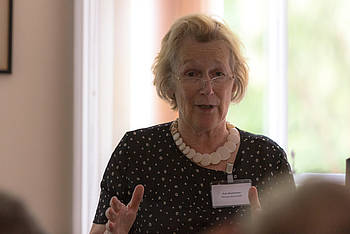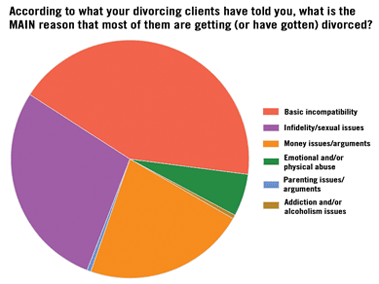I now pronounce you ‘ACOD’
BY KENNEDY COLTHERD
There is a new term that is gaining popularity among adults. It is ACOD, which means Adult Child of Divorce. How do you deal with being an adult and all of a sudden having divorced parents?
According to the parenting and child support after separation page on the Government of Canada’s website, 1.2 million separated or divorced Canadians have children under the age of 18. Divorce is a traumatic time for any child but a teenager is more likely to suffer from mental illnesses and other setbacks when their lives has change dramatically.

Ann Buchanan giving a speech. (Photo from University of Oxford)
Professor Ann Buchanan, from the University of Oxford, in England says “From my research. Most children survive divorce but there remains a sense of sadness/loss in adulthood. Crucial to outcomes is how parents handle the divorce.”
According to Buchanan how the parents handle the divorce affects to how the child reacts and recovers.
According to Goldhart & Associates family law in Toronto, the No.1 reason why Canadians get divorced is because of financial problems, the second is infidelity and third, just simply falling out of love.

Pie chart highlighting the main reason of divorce in North America.
Teenagers can find it especially difficult if parental divorce also means changing schools, homes, and friends. Also children are often impacted by parental mood.
Buchanan says if there is “bad blood” or tension within the family unit the teenager will find it harder to get through the process, it all depends on the parents mood. For example if the grandparents don’t like the father/mother anymore and constantly express that, that will also have an effect on the teenager.
An ACOD (Adult Child of Divorce) is when legally the child of the family is classified as an adult but their parents still decide to separate. According to Christina McGhee who writes articles on parenting, adults forget that even though your baby may be classified as an adult they are still the child from the relationship. This is when the lines are usually blurred and one parent begins to rely on the child as support instead of trying to protect them. This then results in one adult constantly venting to the ACOD, leaving the ACOD divided confused and burdened with all of the “grown ups” thoughts.
New York’s Jenny Kutner who shared her story on connections.mic about her personal experience as an ACOD. “When my parents got divorced, I joined a club. By the time they decided to get divorced, my parents had become glorified roommates; they shared a home together but not a life. My freshly grownup eyes had seen the demise of their marriage unfold in slow-motion for months.” As an adult you can see your parents slowly deteriorating and the love disappearing. As a child you’re completely oblivious as to what is going on around you.
There is a 2013 movie called ACOD starring Adam Scott that portrays how he is dealing with being an adult child of divorce. As the older brother he tries to protect his younger brother from seeing the hatred his parents now have toward one another.




